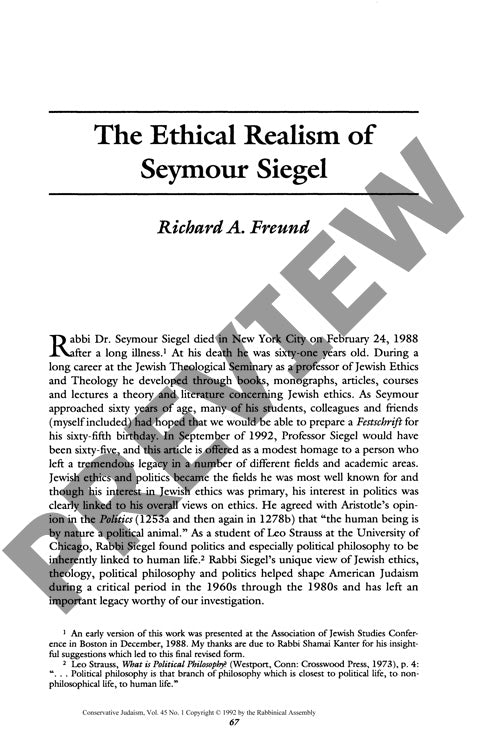The Ethical Realism of Seymour Siegel
Couldn't load pickup availability
Seymour Siegel's distinctive approach to Jewish ethics—which he developed as a leading voice at the Jewish Theological Seminary from the 1960s through the 1980s—revolutionized how American Judaism navigated modern ethical challenges. Through examination of Siegel's extensive writings, institutional positions, and his influential role as Chairman of the Committee on Jewish Law and Standards, a complex ethical framework emerges that synthesized American pragmatism with traditional Jewish wisdom. His "ethical realism" drew from an unusually diverse range of influences: Reinhold Niebuhr's Christian realism, Martin Buber's dialogical philosophy, Mordecai Kaplan's pragmatic theology, and Edmund Burke's conservatism. Rather than rely on abstract principles, Siegel advocated for ethical decision-making grounded in practical circumstances, leading him to adopt politically conservative yet religiously progressive positions. His methodology seamlessly integrated sources across Jewish history—from biblical texts to Hasidic tales—treating them as interconnected expressions of Jewish ethical thought. Through biographical analysis and careful study of his published works, this research demonstrates how Siegel created an influential framework that balanced traditional Jewish law with contemporary moral challenges. His legacy continues to shape modern Jewish ethical discourse, offering a model for addressing complex moral questions through a synthesis of pragmatic analysis and religious wisdom.

More Information
-
Physical Description
-
Publication Information
Published 1992
ISBN
-
Publication Credits
Richard Freund

